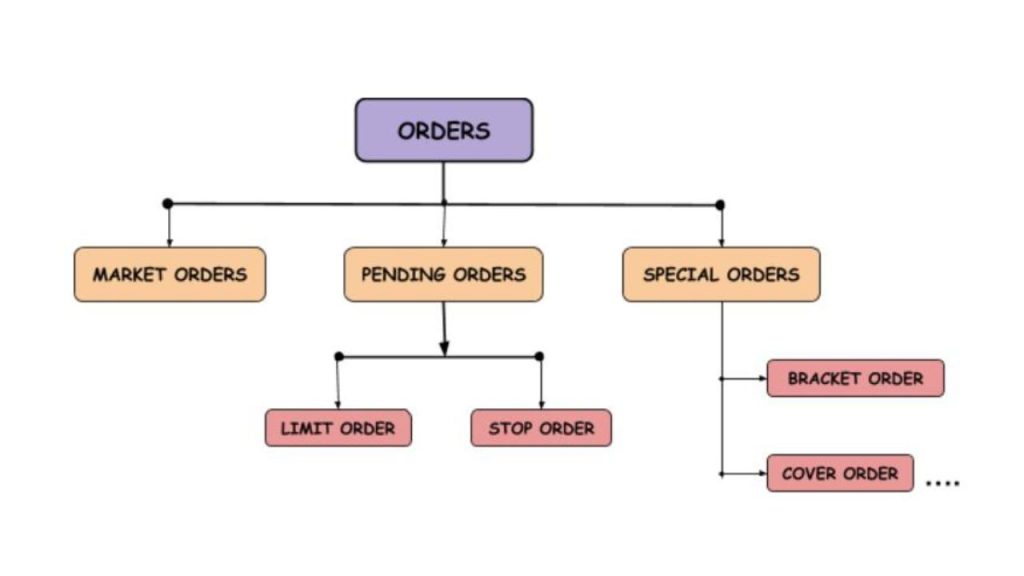Different types of orders are placed in the stock market. Often there is confusion about when to place a sell order and when to place a buy order…. because it is very difficult to decide at what time we should sell our securities and at what time we should buy and keep them… so that our returns are high. For this, you have to know about the different types of orders placed in the market… I am going to tell you some things about this. Recently we have given complete information about the simple account opening form. Now you can see more information about “Different types of orders placed in the stock market” by scrolling down.
If you liked this article, please like us on Facebook so that you can get our updates in the future… and subscribe “freely” to our mailing list
Quick Links
Different types of orders placed in the stock market

1. Market Order:
This is the most commonly placed order in the markets. And this order is for buying and selling the investors’ holdings at the best price. The person who wants to buy the stock at a particular price asks the broker to buy it at the lowest available price. The seller asks the broker to look for the highest price. Of course, both do not know at what price the stock will be bought or sold eventually. But the system is configured in such a way that the highest price for the seller will appear first and vice versa for the buyer. However, there may be a difference in the price while executing the transaction.
Must Read – BOI Balance Enquiry Number 2024,
2. Market Protection Order:
While placing an order on the Bombay Stock Exchange, clients/investors can specify the deviation from the current offer/bid price up to which the order can be executed. In simple terms, the acceptable price variation is specified by investors while placing the order itself.
For example, if you enter 5%, it means that the price at which the order will be executed will be limited to plus or minus 2% of the current market price. If this limit is crossed above or below that specified variation, it will not be executed.
3. Limit Order:
In this, the buyer states the price limit beyond which he will not buy. The broker can buy only at the specified price or below. Similarly, the seller specifies a limit below which he will not sell. For example, a buy limit order of Rs 700 for a specific scrip will work only if there is a seller at Rs 700 or below.
Since the price limit is fixed at the time of placing the order itself, it is called a limit order.
4. Day Order:
This order is valid only on the day it is placed as the market fluctuates massively every minute and every day.
5. Fill or Kill Order:
This is an order to buy or sell a certain number of shares and is meant for immediate execution. If it cannot be executed immediately, it is canceled. It is called so because it is automatically “killed” if the order is not filled within the time.
Check out – IndusInd Bank Balance Enquiry Number 2024.
6. Stop Order:
This is a conditional order that is activated only when the market price of the security reaches or crosses the limit specified by the investor as the Stop Loss Trigger Price or SLTP. When SLTP is specified, it becomes conditional on the market price of the stock crossing the SLTP.
If you want to sell your holdings when the market price falls below Rs 1000, you can set the SLTP value to Rs 1000, so that your sell order gets activated once it reaches Rs 1000.
7. Declared quantity:
This order allows disclosing only a part of the order quantity to the market. For example, a declared quantity of 200 in an order of 2000 shares means that the market will know that you are buying only 200 shares. After this, the order for the other 200 will be disclosed, and so on, until the entire order is executed.
Also, check – South Indian Bank Balance Enquiry No 2024
8. Basket order:
Basket trading helps investors execute orders in a set of stocks that are either index constituents or part of a basket created by them. In this, multiple stocks can be bought in a single order. If you want to buy shares of TCS, WIPRO, INFOSYS, and RIL at once then you can place a basket order to fulfill your desire to buy them.
If you have any query regarding “Different types of orders placed in Stock Market” then please let us know through the comment box given below…
Recommended Articles:-

